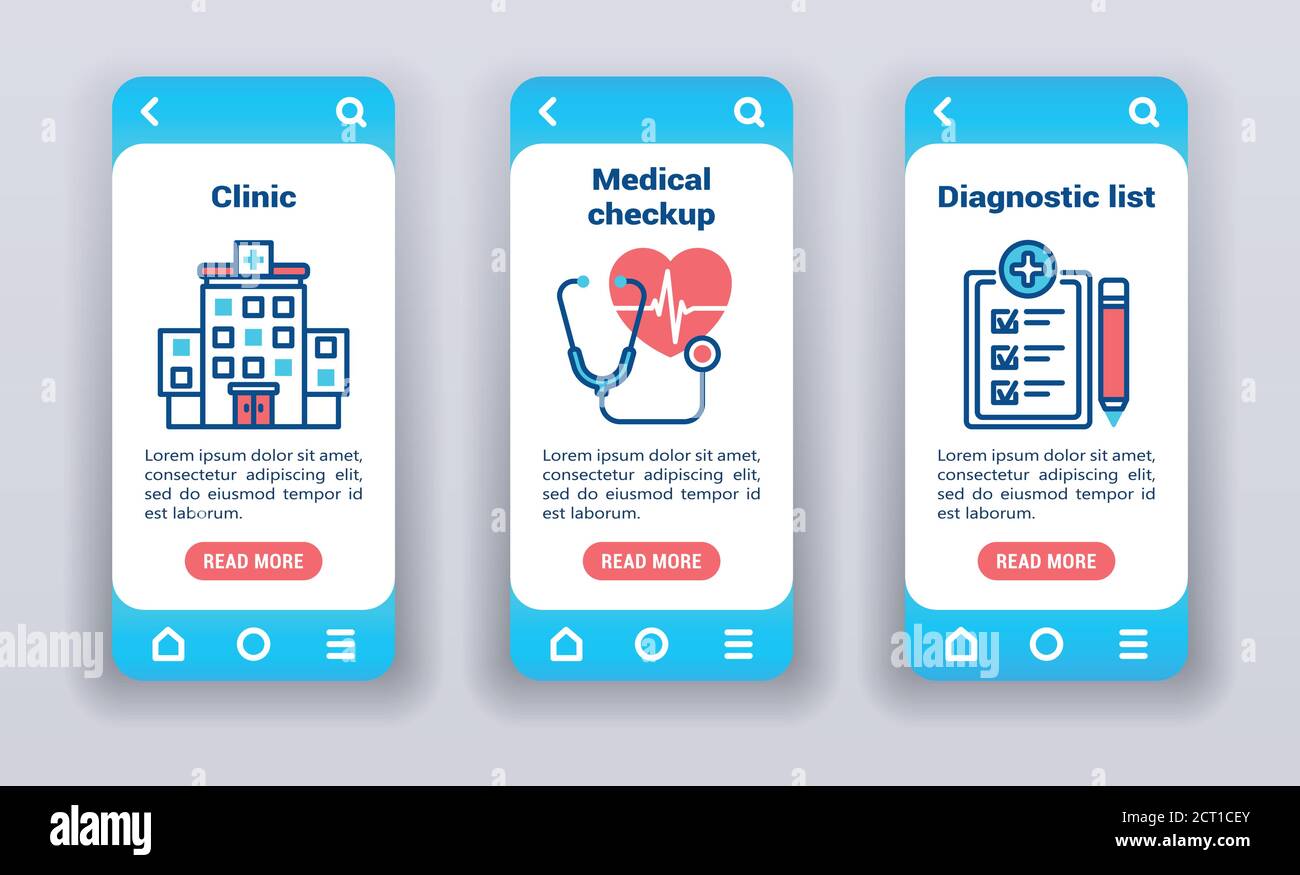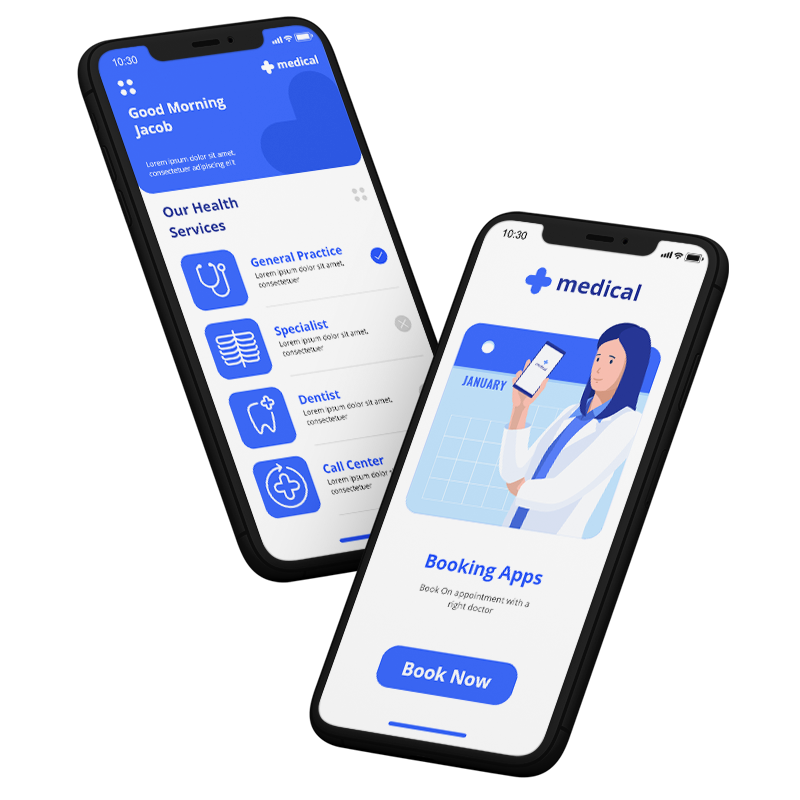The Future of Healthcare: Ingenious Solutions with a Mobile App for Clinics
The Future of Healthcare: Ingenious Solutions with a Mobile App for Clinics
Blog Article
The Future of Medical Care: Why Clinics Required a Mobile Application Today
As the health care landscape proceeds to develop, facilities deal with placing pressure to adjust to patient assumptions for better comfort and ease of access. The assimilation of mobile applications can offer as an essential technique for enhancing patient involvement and simplifying procedures.
Changing Patient Expectations
As the landscape of healthcare evolves, patient assumptions are going through a significant makeover. Today's patients are increasingly looking for benefit, access, and customized treatment.
Additionally, individuals are coming to be much more informed and empowered, frequently researching therapies and problems on-line prior to assessments. This increased understanding is coupled with a demand for transparency in health care processes, consisting of expense price quotes and therapy alternatives. As a result, suppliers are compelled to adapt by adopting digital tools that enhance the individual experience.
The expectation for efficient and timely interaction has actually never been greater, with numerous patients thinking about responsiveness a crucial part of high quality treatment. mobile app for clinics. In this evolving landscape, medical care companies must identify these transforming assumptions and take advantage of mobile applications to promote a much more patient-centric technique, making sure that they not only satisfy yet exceed the requirements established by today's educated customers
Enhancing Patient Interaction

Mobile applications assist in interaction between clients and doctor, making it possible for real-time appointment organizing, pointers for drug adherence, and direct messaging attributes. These functionalities not only improve comfort yet also build a sense of responsibility amongst people. Mobile applications can use educational web content tailored to specific requirements, aiding clients much better understand their conditions and treatment options.
The integration of gamification elements within healthcare applications can also encourage people to engage in healthy and balanced actions, reinforcing positive lifestyle modifications. By tracking development and gratifying achievements, patients are more probable to remain committed to their health goals. Eventually, improving client engagement through mobile applications leads to boosted health and wellness outcomes, greater person contentment, and a more collaborative medical care experience. Centers that prioritize this element will likely see a considerable effect on the top quality of care delivered.
Improving Facility Operations
Enhancing center operations is necessary for improving workflow effectiveness and maximizing client treatment. The implementation of mobile applications can dramatically reduce administrative problems, enabling healthcare service providers to concentrate more on client interactions. By automating visit organizing, client check-ins, and billing processes, facilities can reduce wait times and enhance total operational effectiveness.
Mobile apps additionally help with real-time access to patient records, enabling health care experts to make enlightened choices quickly. This immediacy not only improves the high quality of treatment however likewise minimizes the possibility of errors related to lost or outdated information. Moreover, leveraging mobile modern technology sustains an extra well organized strategy to taking care of patient follow-ups and treatment strategies, guaranteeing that no important actions are ignored.
This enables for prompt replenishment and aids avoid interruptions in person care due to equip shortages. By integrating these capabilities into their everyday operations, facilities can create an extra cohesive and effective atmosphere, inevitably leading to boosted client outcomes and fulfillment.
Improving Interaction Channels
Efficient communication is regularly cited as a foundation of quality health care shipment. In today's busy medical setting, mobile applications can significantly improve interaction networks between clinics, patients, and doctor. By incorporating mobile apps into their operations, facilities can facilitate real-time interactions, making certain that patients receive timely information regarding their appointments, examination results, and therapy strategies.
Mobile applications also equip clients to interact directly with their health care groups through safe and secure messaging attributes. This direct line of interaction promotes a sense of interaction and allows for prompt explanation of issues, which can result in much better adherence to treatment protocols. In addition, press alerts can remind clients of upcoming consultations or drug timetables, lowering no-show prices and boosting general health and wellness results.

Staying Affordable in Medical Care
In a swiftly evolving healthcare landscape, organizations must prioritize innovation and flexibility to preserve an one-upmanship. The have a peek at this website combination of mobile applications into medical care services is no much longer optional; it is vital for facilities aiming to improve person engagement, improve procedures, and boost total service shipment.
As individuals significantly count on digital platforms for health and wellness monitoring, facilities that fail to adopt mobile innovation danger falling back. A properly designed mobile application can offer features such as visit scheduling, telemedicine examinations, and accessibility to clinical documents, giving patients with convenience and fostering loyalty.

Competitors are also purchasing mobile services, so remaining in advance requires continual improvement and remaining notified about technical developments. Clinics must not just execute mobile applications but likewise take part in routine updates and improvements. Ultimately, the successful assimilation of mobile innovation will identify forward-thinking health care companies and set the standard for patient-centric care in an electronic world.
Verdict
In conclusion, the assimilation of mobile applications in centers is essential to resolve the developing landscape of patient assumptions. By boosting client involvement, improving procedures, and enhancing interaction networks, centers can considerably enhance health outcomes. In addition, the fostering of mobile technology settings centers to continue to be affordable in an increasingly digital health care atmosphere. Inevitably, the critical implementation of mobile applications represents an essential step towards providing tailored and obtainable healthcare, thus satisfying the requirements of today's equipped clients.
Ultimately, enhancing client interaction with mobile applications leads to improved health end results, higher client complete satisfaction, and a more joint health care experience.Mobile apps additionally assist in real-time access to person records, enabling medical care experts to make enlightened decisions quickly. In today's busy medical setting, mobile applications can substantially enhance interaction channels in between clinics, visite site individuals, and mobile app for clinics healthcare providers.Mobile apps additionally equip people to interact straight with their medical care groups with safe and secure messaging functions. Inevitably, the tactical execution of mobile apps stands for a crucial step towards delivering easily accessible and personalized health care, therefore fulfilling the requirements of today's encouraged patients.
Report this page